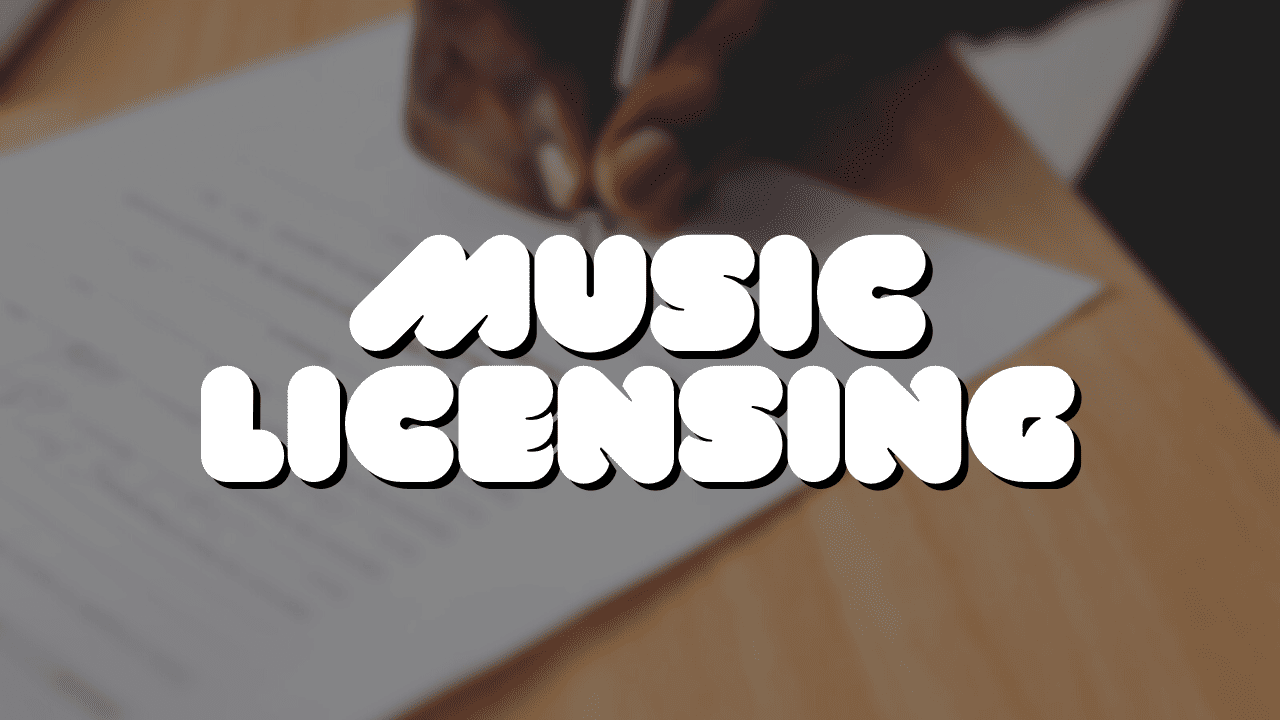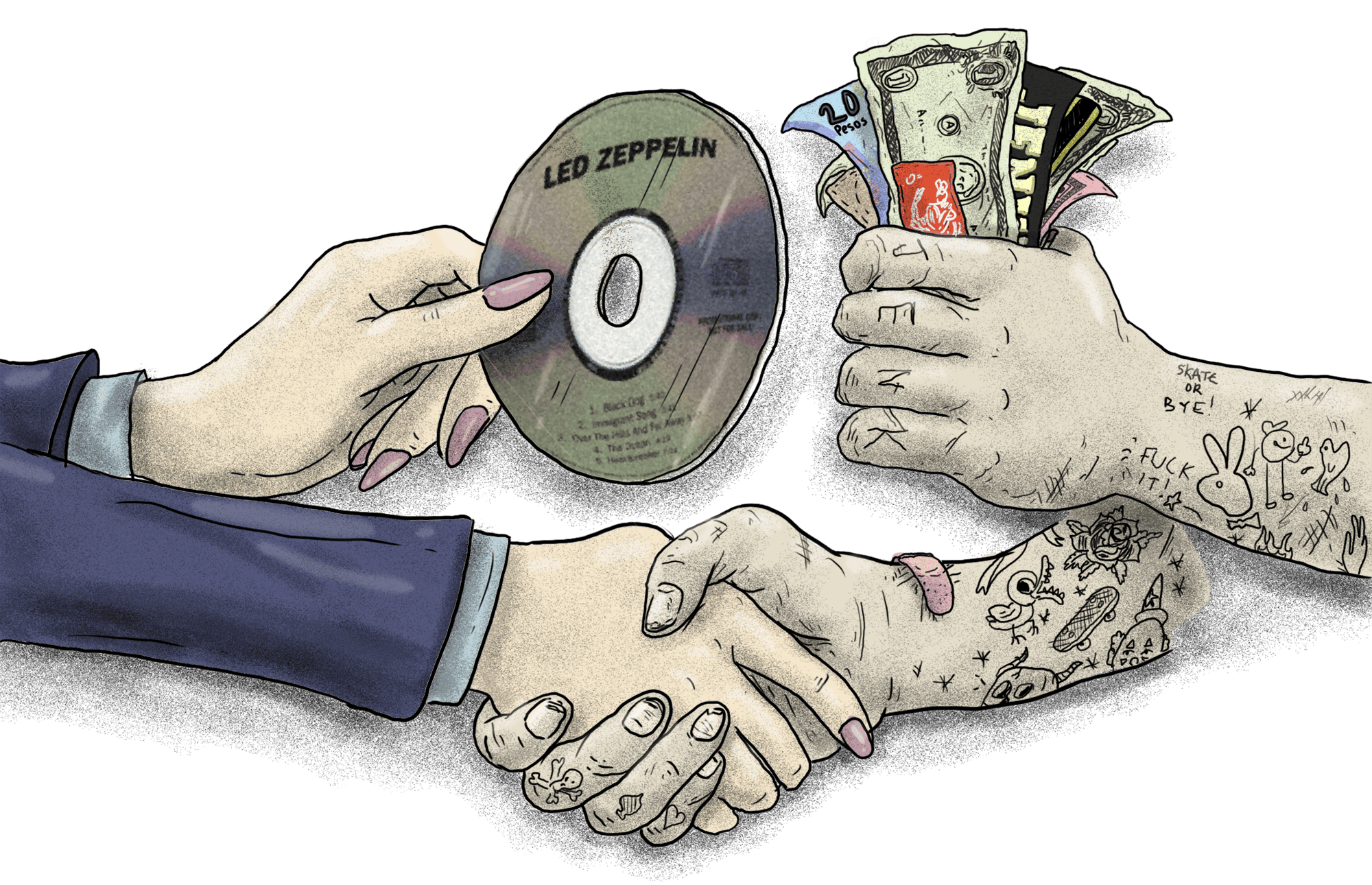Music licensing may seem intricate, yet it’s a vital facet of the music industry. Musicians, producers, and songwriters can benefit significantly from grasping the fundamentals of music licensing. This ensures them safeguard their creations, generate income, and secure placements in films, TV series, and advertisements. In this guide, we’ll demystify various music license types, elucidate their mechanisms, and provide insights for navigating the music licensing realm. Let’s commence by understanding the essence of music licensing.
What is music licensing?
Music licensing is the procedure of granting authorization for the utilization of a copyrighted musical composition in diverse media formats, including films, television programs, commercials, video games, and more.
Upon the creation of a music composition, the composer automatically possesses the copyright for that piece. This signifies that no one else can employ, replicate, or distribute the composition without the composer’s consent.
When a filmmaker, advertiser, or video game developer intends to incorporate a musical piece into their project, they must secure consent from the composer or their authorized representative, such as a music publisher or a music licensing firm.
The licensing agreement delineates the conditions and stipulations of the usage. It also encompasses the duration, geographic extent, and medium in which the composition will be employed.
Music licensing constitutes a pivotal facet of the music industry. It affords artists and composers the opportunity to earn income from their creations in a variety of media outlets.
Moreover, it serves to safeguard the rights of copyright owners, guaranteeing that they receive proper remuneration for their artistic endeavors.
The five types of music licenses
Comprehending the various music license categories is essential for individuals seeking to employ music lawfully and ethically.
Each license type fulfills a distinct purpose and may necessitate negotiations with different parties. Hence, it is vital to conduct thorough research and grasp the licensing prerequisites pertinent to your specific use case.
Here are the five most prevalent music license types.
1. Sync Licensing
Sync licensing entails securing authorization to utilize a musical composition in synchronization with visual media, including films, television series, video games, and commercials.
Typically, acquiring a sync license involves negotiations with the copyright owner or their authorized representative, with the license terms contingent upon the precise intended utilization.
2. Mechanical Licensing
Mechanical licensing involves obtaining consent to reproduce a copyrighted musical piece on tangible or digital mediums like CDs, vinyl records, or digital downloads.
A mechanical license is typically mandatory for any commercial reproduction of a musical composition and is frequently acquired through a mechanical licensing agency, such as the Harry Fox Agency.
3. Performance Licensing
Performance licensing involves securing authorization to perform a musical composition publicly or broadcast it on television or radio.
Typically, these licenses are acquired through a performance rights organization (PRO) like ASCAP, BMI, or SESAC.
4. Master Licensing
Master licensing entails acquiring permission to utilize a specific recording of a musical composition rather than the composition itself.
Commercial usage of a particular recording generally necessitates this type of license, and it is usually procured through the record label or the recording artist.
5. Print and Grand Rights Licensing
Print rights licensing pertains to obtaining permission for the use of sheet music or lyrical content of a musical composition in a theatrical production. In contrast, grand rights licensing pertains to securing permission to use the musical composition itself in a theatrical production.
These licenses come into play in theatrical performances, such as musicals and operas.
How to License Your Music
Musicians can earn extra income and gain exposure by licensing their music. Here’s a guide on how to get started:
Promote Your Music
Building a fanbase and industry recognition is key. Music publishers and licensors discover your music through your reputation. Market your music actively.
Submit your work to music libraries, sync licensing firms, and reach out to music supervisors in film and TV. Networking at music events can also help.
Consider a publisher or music library to handle marketing in exchange for publishing rights.
Register with a Performing Rights Organization (PRO)
To receive royalties, register your music with a performing rights organization like ASCAP, BMI, or SESAC. These entities track your music’s usage and collect royalties on your behalf.
Create a Licensing Agreement
When you find a licensing opportunity, draft an agreement outlining terms such as license duration, permitted territories, and compensation.
Working with a publisher can simplify the process of finding opportunities and securing agreements.
By following these steps, you can enhance your chances of successfully licensing your music and reaching a broader audience.
Understanding Music Licensing Costs
Music licensing fees can vary based on several factors, such as the license type, usage duration, and song popularity.
For instance, licensing a popular song for a major film will cost more than using a lesser-known track in an indie movie.
Fortunately, numerous online platforms offer budget-friendly, high-quality music licensing options. Top sites include Musicbed, AudioJungle, and Epidemic Sound.
These platforms provide a diverse range of music genres and license choices, catering to businesses and content creators seeking ideal music for their projects at reasonable rates.
By considering license type, usage duration, and industry, businesses and creators can estimate music licensing costs more accurately. Online music licensing platforms simplify the process of finding affordable, suitable music for any project.



